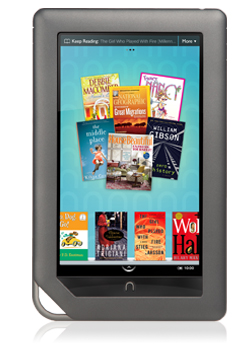Editor's Note: If you are inspired, awe struck or just emotional about a particular place consider using it as a setting in a novel. A place with such emotional ties adds a rich element to the story.
Karen Dionne is the internationally published author of Freezing Point, a science thriller nominated by RT Book Reviews as Best First Mystery of 2008.
A second environmental thriller, Boiling Point, about an erupting volcano, a missing researcher, and a radical scheme to end global warming is forthcoming from Berkley in January 2011.
Karen is cofounder of the online writers community Backspace, and organizes the Backspace Writers Conferences held in New York City every year. She is a member of Sisters in Crime, Mystery Writers of America, and the International Thriller Writers, where she currently serves on the board of directors as Vice President, Technology.
She is also Managing Editor of the International Thriller Writers' newsletter and webzine, The Big Thrill.
My new environmental thriller, Boiling Point, is about an erupting volcano, a missing researcher, and a radical scheme to end global warming involving geo-engineering. The story takes place during the time of a real volcanic eruption: Chaitén volcano, in Northern Patagonia, Chile.
 Chaitén Volcano came to life for the first time in 9,000 years on May 2, 2008 in a major eruption. The magma blasted 3.1 miles through Earth’s crust in only four hours, giving the people living in the town at the base of the volcano six miles away just 30 hours’ warning. The volcanic plume climbed 12 miles into the stratosphere, covering much of Patagonia with ash and drifting as far east as the Atlantic.
Chaitén Volcano came to life for the first time in 9,000 years on May 2, 2008 in a major eruption. The magma blasted 3.1 miles through Earth’s crust in only four hours, giving the people living in the town at the base of the volcano six miles away just 30 hours’ warning. The volcanic plume climbed 12 miles into the stratosphere, covering much of Patagonia with ash and drifting as far east as the Atlantic. No one lost their life, but ten days later, heavy winter rains washed the ash that covered the ruined mountains into the river, creating a lahar that caused the banks of the Rio Blanco to overflow and destroying 90% of the town.
Because my publisher bought Boiling Point before it was written, I was able to travel to Chaitén volcano one year after the initial eruption for onsite research. I stayed in Chaiten town, even though the town was still evacuated and without electricity and running water, and hiked to within one mile of the new lava dome, where I saw steam vents, heard explosions coming from the caldera, and felt a small earthquake. It was an amazing and inspiring trip that definitely informs the novel!
I chose Chaitén as the location for Boiling Point after I saw this amazing picture of the initial eruption that was making the rounds of the Internet:
As I wrote the chapters leading up to the moment of eruption, was really looking forward to describing that amazing plume:
"A colossal pillar of ash and gas spewed from Chaitén’s caldera. Molten rock colored the column red as it streaked for the stratosphere, turning the sky around it a sickly yellow. Plumes of steam erupted from the surrounding rocks, cheering the inferno heavenward like hissing demons."
Boiling Point follows several characters’ stories until they all converge at the volcano at the end, and so not long after, I had the chance to describe the plume again from another character’s point of view:
"To the east, the massive pillar of ash stretched into the night. It roiled and pulsed like a living thing, lit from within by great sheets of orange and red flame like a Hollywood explosion that just kept going. Flickering around it and through it were brilliant bolts of lightning, dancing and chasing each other, lighting up the whole plume and the layers of cloud above and below with purple. A terrifying construct of fire and lightning and smoke. A vile, elemental monster, looming over his town, threatening to rain down flame and thunder. Heart-stopping. Terrifying. Like something born of the perverse imagination of a disaster movie director. This wasn’t something that happened in real life. And yet there it was, right in front of him, and Gabriel was watching it with his own eyes."
And not long after that, again:
"And then there was the volcano. At the edge of the caldera, wisps of steamlike mist. Beyond, a smoking hump—a newborn lava dome, barely visible in the shifting ribbons that curled up around it. A brand-new mountain where none had been a day ago. It smoked and shuddered, and even from this distance they could hear it pop and rumble as boulders tumbled down its slopes. The tendrils of steam that spewed from its sides rose up to meet the main column, a vast nightmare tower of churning ash and steam. It rose up into the heavens and mixed with the clouds until Ross couldn’t tell where the volcano’s plume ended and the sky began, spreading its umbrella over the world and raining down ash. Ash that was falling on them."
– and again:
"An angry black column of ash and debris filled the sky, writhing and roiling like something alive, so big, she felt like an ant contemplating the smoke from a roaring campfire. Like the lone survivor of an atomic blast."
– and again
"At last, the caldera. She craned her neck as she drove through a passage that was eerily similar to the one she’d entered from the other side barely twenty-four hours ago. Towering walls guarding a narrow entrance, the gates of Hell. Inside, a world of fire, steam, and smoke. Staggering in its immensity and power. Elemental. She could feel Chaitén’s vibrations thrumming through the floorboards. See the rocks crumbling off the cliff faces as she drove between them. Smell the sulfurous odor belching from the bowels of the Earth. Hear the mountain roar. The vast expanse of rocky ground was split apart, riddled with cracks oozing new rock, spurting steam. And in the middle, a hill of red rock that was already the size of a small mountain, vomiting a roiling tower of ash and gas from the center of the Earth, darkening the skies and raining down cinders and ash: the newborn lava dome. Dante’s Inferno."
– again and again and again. I’ll admit, by the time the last character saw the volcanic plume for the first time, it was becoming a real challenge to find a fresh way to describe what was essentially exactly the same thing.
Don’t get me wrong: Boiling Point was a lot of fun to write. After all, the novel has a 40-page climax that takes place IN the caldera of an erupting volcano – it doesn’t get more exciting than that! But having the bulk of the story take place immediately following Chaitén’s eruption created another descriptive challenge, as the following video illustrates:
(Chaitén volcano, Northern Patagonia, Chile. Video by Karen Dionne. To see more photos and video of my research trip to Chaitén volcano, visit www.karendionne.net)
My next novel, I’m choosing a more colorful setting!
To read an excerpt from Boiling Point, click here.













![Reblog this post [with Zemanta]](http://img.zemanta.com/reblog_e.png?x-id=4314dfc0-4df4-4daa-98e3-2d98d9096e68)



![Reblog this post [with Zemanta]](http://img.zemanta.com/reblog_e.png?x-id=3fc95f8e-2f24-494d-8ee6-75e3cd88551b)



![Reblog this post [with Zemanta]](http://img.zemanta.com/reblog_e.png?x-id=21fa8aa0-0151-458a-a803-06e08315cec6)

![Reblog this post [with Zemanta]](http://img.zemanta.com/reblog_e.png?x-id=44a655aa-fa4a-4c5e-a037-7d9a2acea741)


![Reblog this post [with Zemanta]](http://img.zemanta.com/reblog_e.png?x-id=abbdfcd0-2c4a-47a6-8492-984b0797726e)